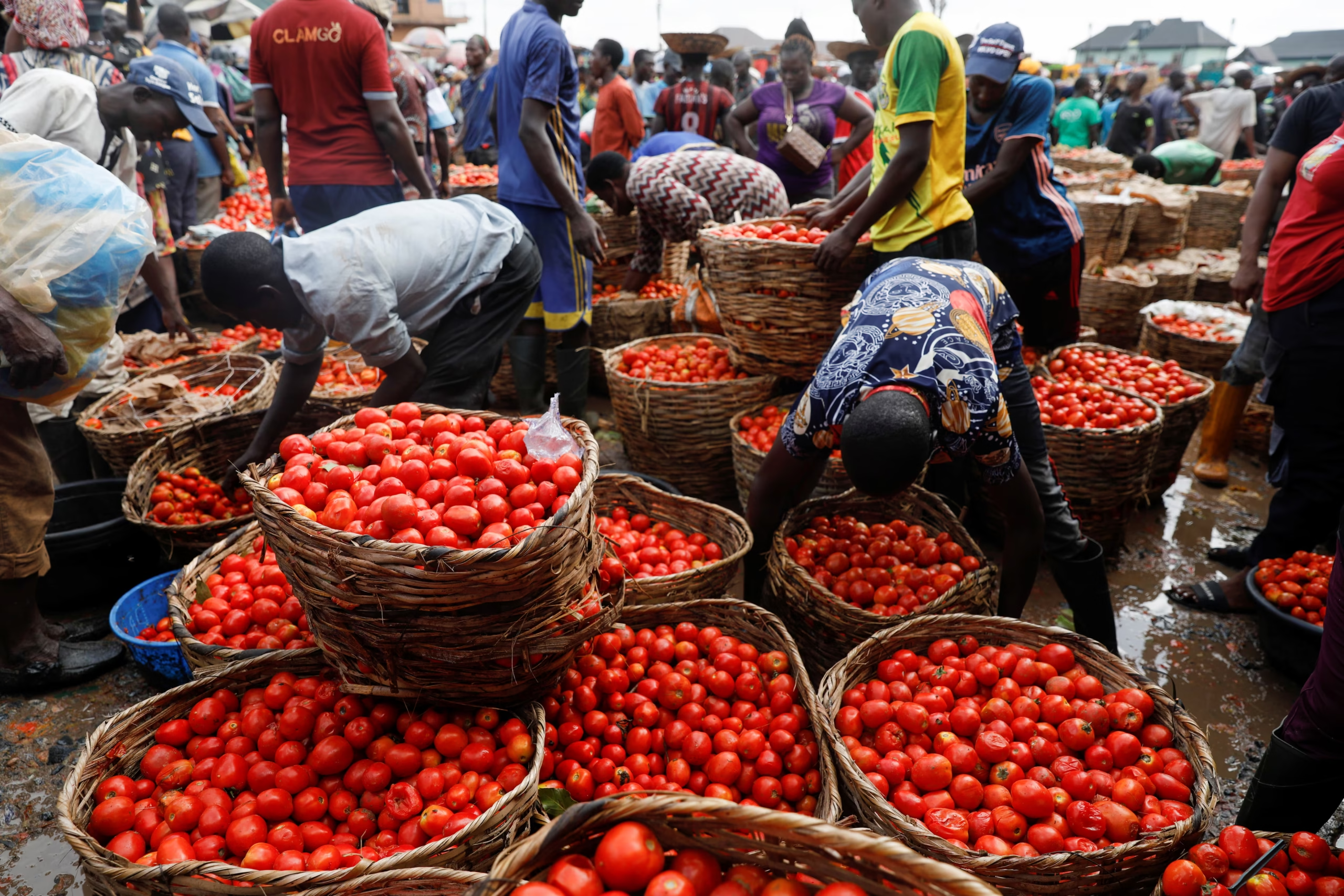Key Highlights:
- Nigeria’s Consumer Price Index (CPI) drops significantly, indicating easing inflation.
- Market analysts question if the lower inflation translates to real economic relief for citizens.
- Food prices, fuel costs, and essential services remain high despite official inflation data.
- Wage stagnation and unemployment continue to challenge purchasing power.
- Business sentiment remains mixed amid fluctuating economic conditions.
Recent reports show a notable decline in Nigeria’s inflation rate, a development that has sparked both optimism and skepticism. Official data indicates a significant drop in the Consumer Price Index (CPI), reflecting reduced inflationary pressures. However, for many Nigerians, the question remains: is this statistical improvement translating into tangible economic relief?
While the macroeconomic indicators suggest progress, anecdotal evidence from households paints a different picture. Many consumers still report difficulties in affording basic necessities, raising doubts about whether the inflation decline is meaningful for the average person. Furthermore, businesses continue to face high operational costs, which are often passed on to consumers. Without a corresponding rise in wages and economic growth, the perceived benefits of lower inflation may remain elusive for most Nigerians.
The Discrepancy Between Data and Reality
Despite the encouraging numbers, the cost of living remains a pressing concern. Essential commodities like food, transportation, and rent continue to strain household budgets. The recent decline in inflation may be attributed to government interventions and monetary policies, but the actual effects on consumer wallets tell a different story.
Food prices, in particular, have remained stubbornly high. While inflation metrics suggest moderation, staples like rice, beans, and cooking oil continue to command steep prices. Factors such as supply chain disruptions, insecurity in agricultural regions, and foreign exchange volatility play significant roles in keeping costs elevated. Additionally, the cost of imported goods has seen little relief due to persistent exchange rate fluctuations. Many local businesses, already grappling with high operational expenses, have struggled to pass on any cost savings to consumers. The informal sector, which constitutes a large portion of Nigeria’s economy, is particularly vulnerable to these pressures, as small traders face higher procurement costs. Even public transportation fares have stayed elevated, offsetting potential savings from declining inflation rates. Consequently, the economic strain remains palpable for the majority of Nigerian households.
Purchasing Power and Wage Stagnation
One of the biggest challenges facing Nigerian households is stagnant wages. While inflation figures might be easing, salaries have not kept pace with previous spikes in the cost of living. Many workers find their real income eroded, making it difficult to afford essential goods and services.
Unemployment and underemployment further exacerbate the issue. With fewer job opportunities and limited economic expansion, disposable income remains constrained. This contradiction highlights why many Nigerians are not experiencing the relief suggested by lower inflation rates. Additionally, rising utility bills and transportation costs continue to erode household earnings, leaving little room for savings or discretionary spending. Many workers, particularly in the informal sector, struggle with irregular income flows, making financial stability difficult to achieve. Furthermore, the increase in taxes and levies in some sectors adds another burden, further limiting disposable income. As a result, even those employed find it challenging to experience an improved standard of living despite reported economic gains.
The Role of Government Policy and Economic Outlook
The government and the Central Bank of Nigeria (CBN) have implemented several policies aimed at stabilizing the economy. Interest rate adjustments, forex market interventions, and fiscal measures have contributed to curbing inflation. However, their effectiveness in improving daily economic conditions remains debatable.
Moreover, businesses are adapting to the shifting economic landscape with mixed reactions. While some industries benefit from a stable macroeconomic environment, others struggle with inconsistent policy implementations and high operational costs. Small and medium enterprises (SMEs) in particular face difficulties accessing credit, limiting their ability to expand and hire more workers. Additionally, delays in government spending and bureaucratic inefficiencies create uncertainties in the business environment. Foreign investors remain cautious, awaiting clearer policy directions before making significant commitments. Until these structural issues are addressed, the impact of monetary policies on the real economy may remain limited.
Conclusion: Inflation Down, But Not Out
While inflation rates are showing signs of improvement, the broader economic picture remains complex. The relief from lower inflation has yet to be fully felt by the average Nigerian. Until wage growth, employment opportunities, and affordability improve, inflationary pressures will continue to be a significant concern for households and businesses alike.
Investors and policymakers will need to closely monitor economic indicators to ensure that macroeconomic improvements translate into real economic benefits for the people. Without direct improvements in disposable income and cost-of-living reductions, lower inflation may remain a statistical reality rather than a lived experience for Nigerians. Additionally, addressing structural bottlenecks in the economy, such as power supply inefficiencies and regulatory hurdles, will be crucial in sustaining long-term economic gains. The informal sector, which employs a significant portion of the workforce, must also be considered in economic planning to ensure equitable growth. Strengthening social safety nets and enhancing job creation initiatives will be essential in bridging the gap between economic progress and actual improvement in citizens’ welfare.
